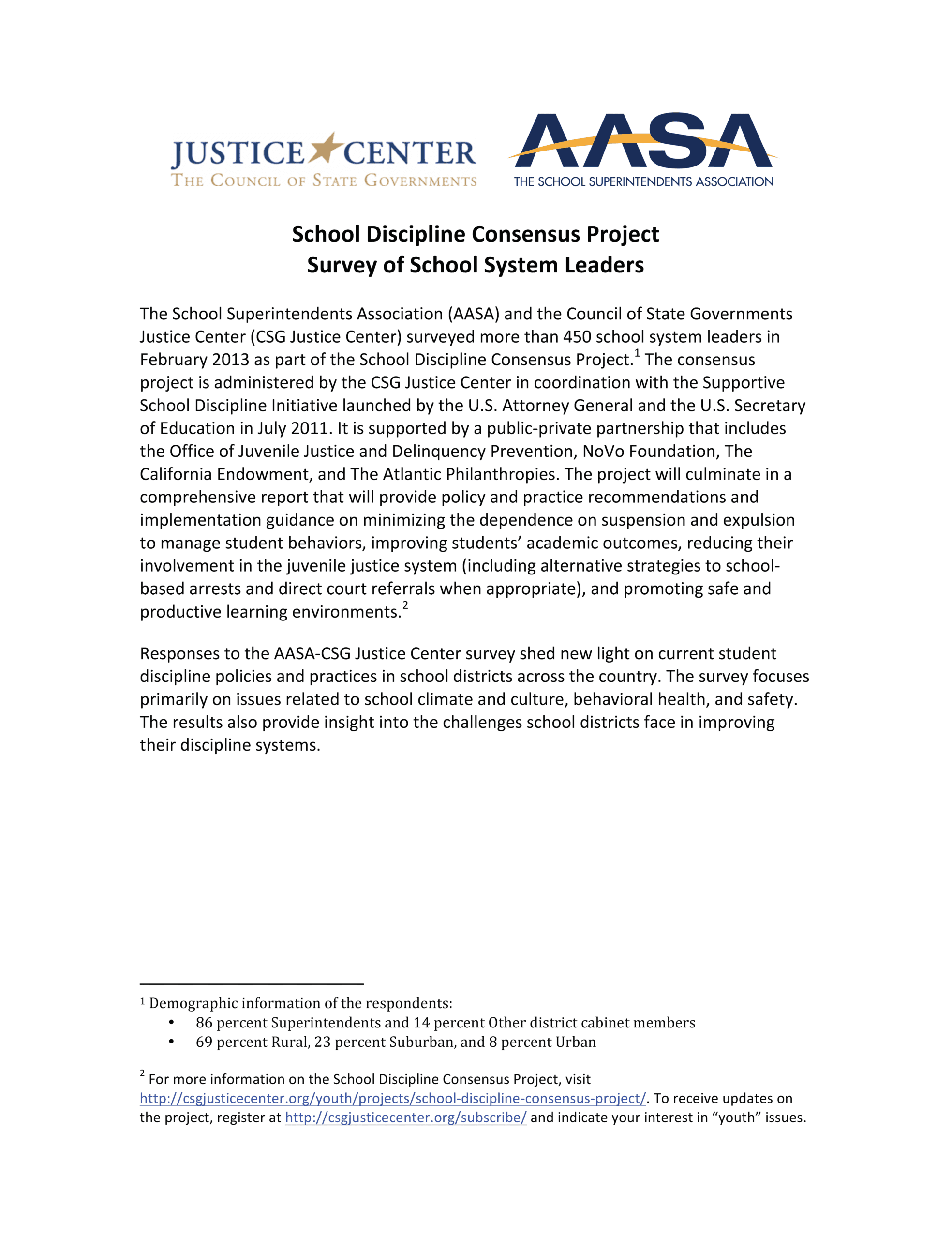Survey of School System Leaders
The School Superintendents Association (AASA) and The Council of State Governments (CSG) Justice Center surveyed more than 450 school system leaders in February 2013 as part of the School Discipline Consensus Project.
The consensus project is administered by the CSG Justice Center in coordination with the Supportive School Discipline Initiative launched by the U.S. Attorney General and the U.S. Secretary of Education in July 2011. It is supported by a public-private partnership that includes the Office of Juvenile Justice and Delinquency Prevention, NoVo Foundation, The California Endowment, and The Atlantic Philanthropies. The project will culminate in a comprehensive report that will provide policy and practice recommendations and implementation guidance on minimizing the dependence on suspension and expulsion to manage student behaviors, improving students’ academic outcomes, reducing their involvement in the juvenile justice system (including alternative strategies to school-based arrests and direct court referrals when appropriate), and promoting safe and productive learning environments.
Responses to the AASA-CSG Justice Center survey shed new light on current student discipline policies and practices in school districts across the country. The survey focuses primarily on issues related to school climate and culture, behavioral health, and safety. The results also provide insight into the challenges school districts face in improving their discipline systems.
To view the survey, click here.
 New Hampshire Continues Justice Reinvestment Effort to Improve Conditions for People Who Are High Utilizers of Criminal Justice and Behavioral Health Systems
Read More
New Hampshire Continues Justice Reinvestment Effort to Improve Conditions for People Who Are High Utilizers of Criminal Justice and Behavioral Health Systems
Read More
 New Hampshire Commission Reviews Final Policy Recommendations to Reduce Reliance on Incarceration as Part of Justice Reinvestment Initiative
Read More
New Hampshire Commission Reviews Final Policy Recommendations to Reduce Reliance on Incarceration as Part of Justice Reinvestment Initiative
Read More
 Three Things to Know About New Jersey’s Groundbreaking Community Response Legislation
Three Things to Know About New Jersey’s Groundbreaking Community Response Legislation
In response to growing calls for police reform in New Jersey, particularly following the shootings of Najee Seabrooks and Andrew Washington in March and August 2023, a coalition of law enforcement officials, mental health professionals, and community advocates partnered to explore public safety response alternatives.
Read More













